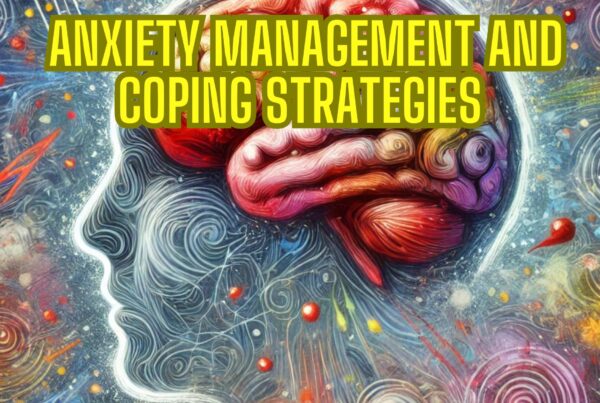What to Say to Someone Suffering from Anxiety
When someone close to us experiences anxiety, it can be incredibly tough to know how to respond. You want to help, but sometimes even well-meaning words can come across as dismissive or unhelpful. It’s not always about finding the perfect solution; it’s about being present, listening, and validating their experience. Knowing what to say to someone suffering from anxiety can make all the difference in that moment.
Anxiety isn’t just feeling nervous before a big event; it’s an ongoing mental health condition that can be overwhelming. For those who suffer from it, the smallest tasks can feel like mountains, and a single thought can spiral into a full-blown panic. Knowing how to offer the right kind of support can make a world of difference.
Key Takeaways
- Anxiety is different for everyone—what works for one person may not work for another.
- Listening without judgment is often more helpful than offering solutions.
- Avoid comparing your experience to theirs; it can diminish what they’re feeling.
- Small gestures matter, like asking how you can help or simply being present.
How to Recognise Anxiety in Someone You Care About
Anxiety is a sneaky condition that doesn’t always show itself in obvious ways. It can manifest differently from person to person—some might seem restless or irritable, while others withdraw completely. Recognising the signs is crucial in knowing when to step in and offer support.
Some common signs of anxiety include physical symptoms such as lightheadedness, sweating, or a racing heart. Others may exhibit behaviours like avoiding social situations, constantly seeking reassurance, or second-guessing themselves. Mentally, they may feel trapped in cycles of worry and fear, convinced the worst will happen. Often, these thoughts are persistent and irrational, yet entirely consuming.
What to Say to Someone Experiencing Anxiety
Knowing what to say can be tricky, but sometimes it’s less about having the perfect words and more about being a calm, steady presence. Here are a few suggestions to keep in mind:
- “I’m here for you. You’re not alone.” – Reassure them that you’re with them through it all. Even if you don’t fully understand what they’re going through, being present is powerful.
- “What can I do to help you?” – Ask how you can help rather than assuming. Maybe they need advice, or maybe they just need a friend to sit with them in silence.
- “This feeling will pass.” – Anxiety can feel never-ending in the moment. A gentle reminder that feelings are temporary can provide much-needed comfort.
Know What NOT to Say to Someone Suffering from Anxiety
Equally important as knowing what to say is understanding what not to say. Certain phrases, though well-intentioned, can feel dismissive or even hurtful. Here are a few to avoid:
- “Just calm down.” – If only it were that easy! Telling someone to calm down often has the opposite effect.
- “I know exactly how you feel.” – Even if you’ve experienced anxiety yourself, comparing your experience can make the other person feel invalidated.
- “You’ll get over it.” – Anxiety isn’t something people can simply snap out of. It often requires time, support, and sometimes professional help.
Offering Practical Support
When someone opens up about their anxiety, one of the most valuable things you can do is offer practical support. This doesn’t mean trying to solve their problems for them—it’s about helping them feel less overwhelmed.
Break tasks into smaller steps. For example, if they’re stressed about an upcoming event, help them prepare one small thing at a time. Offer to be a sounding board as they talk through their worries, without judgment or pressure. Sometimes, even simple activities like taking a walk together or grabbing a coffee can help shift their focus and ease their tension.
Encouraging Professional Support
Sometimes, the most compassionate thing you can do is gently suggest professional help. Anxiety isn’t something that can always be managed with willpower alone. Therapy, medication, or a combination of both can significantly improve someone’s quality of life.
Instead of saying, “You need to see a therapist,” try something softer: “Have you thought about speaking with someone? There’s a lot of support available.” Offer to help them find resources or even accompany them to their first appointment if that feels appropriate.
How to Help Someone During a Panic Attack
Few things are as distressing as watching someone you care about experience a panic attack. Their breathing becomes shallow, their heart races, and they may feel like they’re losing control. While it can be frightening to witness, there are practical ways you can help.
Stay calm and grounded. Gently remind the person that they’re safe and that the feeling will pass. Help them focus on their breathing. A simple exercise like breathing in for four seconds, holding for four, and exhaling for four can work wonders.
Looking After Your Own Mental Health
Being a source of support can be emotionally demanding. It’s easy to pour all your energy into helping someone else, but if you’re not careful, you might find yourself feeling drained or overwhelmed.
Setting boundaries is crucial. Recognise your limits and communicate them kindly but firmly. Taking care of your well-being ensures you can continue to be a steady presence in their life.
Being There For Someone Suffering From Anxiety
Helping someone with anxiety is an act of deep compassion, but it doesn’t require grand gestures or perfect words. Often, it’s the simple things—listening without judgment, offering reassurance, and just being present—that matter the most.
Remember, you’re not there to fix their anxiety but to walk alongside them. With patience, understanding, and the right support, your presence can make a real difference.
FAQs
- How do I approach someone about their anxiety without offending them?
- Start with empathy and curiosity. Use gentle, non-judgmental language like, “I’ve noticed you’ve seemed stressed lately. How have you been feeling?”
- What if they don’t want to talk about their anxiety?
- Respect their boundaries. Let them know you’re available whenever they’re ready, and check in occasionally.
- Can I help someone with anxiety if I’ve never experienced it myself?
- Absolutely! Listening, validating their feelings, and offering practical help are all powerful ways to make a difference.
Release Hypnosis Melbourne Hypnotherapy
Since 2015, Lawrence Akers has been working under the name Release Hypnosis offering Hypnotherapy and ACT based work to people suffering from anxiety either in person in Melbourne or an online service. Based on St Kilda Rd, Release Hypnosis is an easy and convenient location to get to and accessible by the ANZAC station train and tram stop. Release Hypnosis can help with a wide range of presenting issues, and I offer a free 30 minute no obligation discovery call for those who are unsure if hypnotherapy is the right way forward for them.
Book Your FREE 30 Minute Consultation With Release Hypnosis NOW!
You may also like to read:
Overcoming Anxiety and Negative Thoughts with Hypnosis
Anxiety Management and Coping Strategies
How to Use Self-Hypnosis to Reduce Anxiety
Six Negative Mindsets That Trigger Anxiety








